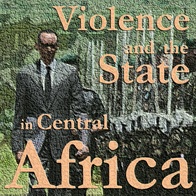
Politics as usual: women, media and the UK general election 2015
Politics has historically been dominated by men, and women have only relatively recently been elected to the UK Parliament in significant numbers. In order for women to be effectively represented in the political domain, they must also be adequately represented in the public discussion of political affairs that takes place in the news media. The ways women are depicted in news sends out important messages about their place and role in society and therefore, if women are absent or marginalised in political news, this reinforces their marginal status in the political process. Historically, women have struggled to achieve much visibility in electoral coverage, and by drawing upon data from the Loughborough Communication Research Centre’s real-time analysis of national broadcasting and press coverage, we can see that the 2015 election was no different.

The Evidence Paradox in Performance Measurement: When is a series not a series?
In a recent briefing paper on breaks and discontinuities in official data series in the UK, two of us [Dixon and Hood] highlighted the tension between the demand for quantitative evidence to drive performance improvement and the tendency to systematically destroy the very evidence by which performance can be evaluated. This paper was discussed, and further examples of data breaks across the public sector were explored, at a seminar at LSE in April, attended by senior civil servants and academics. The ensuing discussion embodied the same tensions, with some participants emphasising the need for indicator continuity, and others stressing that indicators must change as methodologies, purposes, and audiences evolve. Can this tension be resolved? In this article we suggest that recommendations arising from the seminar might point to a way to reconcile these demands.

The Burundi Crisis beyond the third Term (3/3): Regional Implications
The important attention the Burundi crisis has received from the international media shows not only concerns with the safety and future of millions of Burundians but also fears of a regional contagion. Among the key questions are the regional support of president Nkurunziza, the likelihood of a foreign intervention, the lessons for the power-sharing model of peace-building Burundi incarnated, and possibilities for regional and national actors to solve the crisis.

The Burundi Crisis beyond the third term (2/3): local grievances, ethnicity, and the economy
The question of the constitutionality of a third term is absolutely central in the present crisis. The protesters have repeated their view that the constitution does not allow for a third term and expressed their fear of a carving up of the 2000 Arusha Peace agreement. The issues around the third term and Arusha have been widely discussed in the media and other essays. The roundtable tried to take a slightly different viewpoint and explored the key issues of the present crisis beyond the question of the third term: local grievances and post-war reconciliation and integration, the economy (and especially agriculture and aid), and whether the “ethnic factor” is still relevant.

Populism in an FPTP system: UKIP may still succeed if they play the waiting game
Coverage and analyses of the recent British general election of 7 May have focused predominantly on the surprise victory of the Conservatives, the poor showing of Labour, and the close to clean sweep of the Scottish National Party (SNP). The performance of the UK Independence Party (UKIP), meanwhile, was generally perceived to be disappointing for the party of Nigel Farage. Indeed, it has been argued that, despite the high expectations of the past years, UKIP fell well short of causing a ‘Purple Revolution’. At the end of 2014 the party were trending at around 20 per cent in several opinion polls with some excitable elements in the media claiming the party could win as many as 40 seats in the general election. Given this narrative was just six months before the election, their final result of just one seat compounded the apparent failure of Farage’s ‘People’s Army’ to mobilise.

The Burundi crisis (1/3) : (local) forces in presence
When president Nkurunziza announced his intention to run for a third term, serious unrest exploded in the streets of Bujumbura. In the last three weeks, violent clashes with the police have triggered fears of a new civil war and destabilisation of the entire African Great Lakes region. So far, the international community has been unable to calm the situation and 100,000 Burundians have already fled the country. The Oxford Central Africa Forum hosted a round-table on the 15th of May to examine the causes of the current situation and discuss the prospects for peace and democracy in Burundi and the region. It gathered six researchers who have conducted fieldwork in Burundi. We present some of their analysis and findings here in a short series of three articles. In this first post, we explore the forces present on the ground.

It is the perception of immigration levels, rather than actual change in local areas, that explains the UKIP vote
Is there evidence that UKIP support is channelled by local concerns about the influx of immigrants? In fact, the UKIP vote is not actually driven by experience of change in local areas. Instead, the UKIP vote is correlated with the perception of levels of immigration.
The renewed interested in the connection between immigration and electoral politics can be traced to the spectacular rise of UKIP. Even though the party secured just one seat in 2015 general election, its anti-immigration rhetoric resonated strongly among certain sections of Britain’s electorate – UKIP polled 13 per cent of the vote and came second in 120 out of 624 contested seats. Although the party originallyfocused around Conservative euroscepticism rather than immigration, relative to supporters of other parties UKIP sympathisers are much more likely to see immigration as the single most important issue facing the country (see figure 1). Aside from party rhetoric, exemplified by Nigel Farage asserting that parts of Britain were becoming like a ‘foreign land’, is there evidence that UKIP support is channelled by local concerns about the influx of immigrants?

Numbers that matter: Party leader satisfaction ratings and election outcomes
Satisfaction with party leaders of the two main parties would have predicted the outcome of the last nine UK general elections, including the most recent. This measure is worth looking at in more detail as voting intention polls led many forecasters astray in 2015.
Lord Ashcroft’s post-election poll (pdf here) showed the ‘three main reasons for voting’ for each political party in the 2015 UK general election. The biggest difference between parties was the number of people who voted on the basis that ‘the Party Leader would make the best Prime Minister.’ David Cameron, at 71%, far outstripped all his opponents, with Ed Miliband (the next most popular) coming in at 39%. On no other question did the Conservatives have such a large lead.









